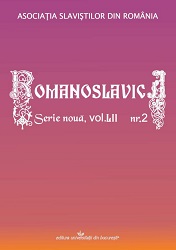Identitet kao alteritet: Vinko Paletin i geopolitika novootkrivenog svijeta
Identity as an alterity: Vinko Paletin and the geopolitics of the New World discoveries
Author(s): Leo Rafolt, Maroje BurumSubject(s): Historical Geography, International Law, Cultural Anthropology / Ethnology, Theory of Literature, Sociology of Religion, Geopolitics
Published by: Editura Universităţii din Bucureşti
Keywords: Vinko Paletin; Bartolomé de Las Casas; New World; India; colonisation; stereotipy; canibalism; souvereignity;
Summary/Abstract: Vinko Paletin is one of the forgotten and less analyzed protagonists of the New World discoveries of the Americas or so called West Indies. His discourse is thus characterized by ethnographic and anthropological subjectivity of the early modern author and analyst – well acquainted in legal and philosophical questions of secularism, pagan identity, ecumenism etc. In the historiographic data his work was often interpreted as an approval of the Spanish conquistador politics. But his intellectual formation is far from the simplicity of these narrow minded historical materials from the early 20th century. His most famous work is a treatise On the right and justification of war against Indians, dedicated to Phillip II, the Spanish King (De jure et justitia belli contra Indos ad Philippum II Hispaniarum regem, 1557–1558, Span. ed. 1559). This treatise, often interpreted as a bitter Dominican response to New World traditional culture, will thus be a main subject of this research. Central assumption is the following: Vinko Paletin was justifying a "middle way" in solving issues between absolute legitimism of the King or King’s figure and his transcendental legitimation (claimed by the contemporary humanists), and a battle run by Bartolomé de Las Casas, justifying the native rights, abolition of slavery, equal habitus between the natives and the conquistadors, etc. Using the methods of literary-anthropological analysis the cluster of stereotypes of the New World will be established, in order to redefine a thin border between Paletin's concepts of ethnic, religious and ideological alterity (otherness) on one side and the concepts of identity, acknowledged by this cosmopolitan humanist author – in all its rights, even to local paganism. Finally, his treatise is considered as contribution to geopolitical and cultural policy of the New World, as well as a tendency to redefine discursive frames or invariants of law treatise, travel writing, ethnography, and even essayistic literature.
Journal: Romanoslavica
- Issue Year: LII/2016
- Issue No: 2
- Page Range: 389-415
- Page Count: 27
- Language: Croatian

